China Perfume Market Smells like Money
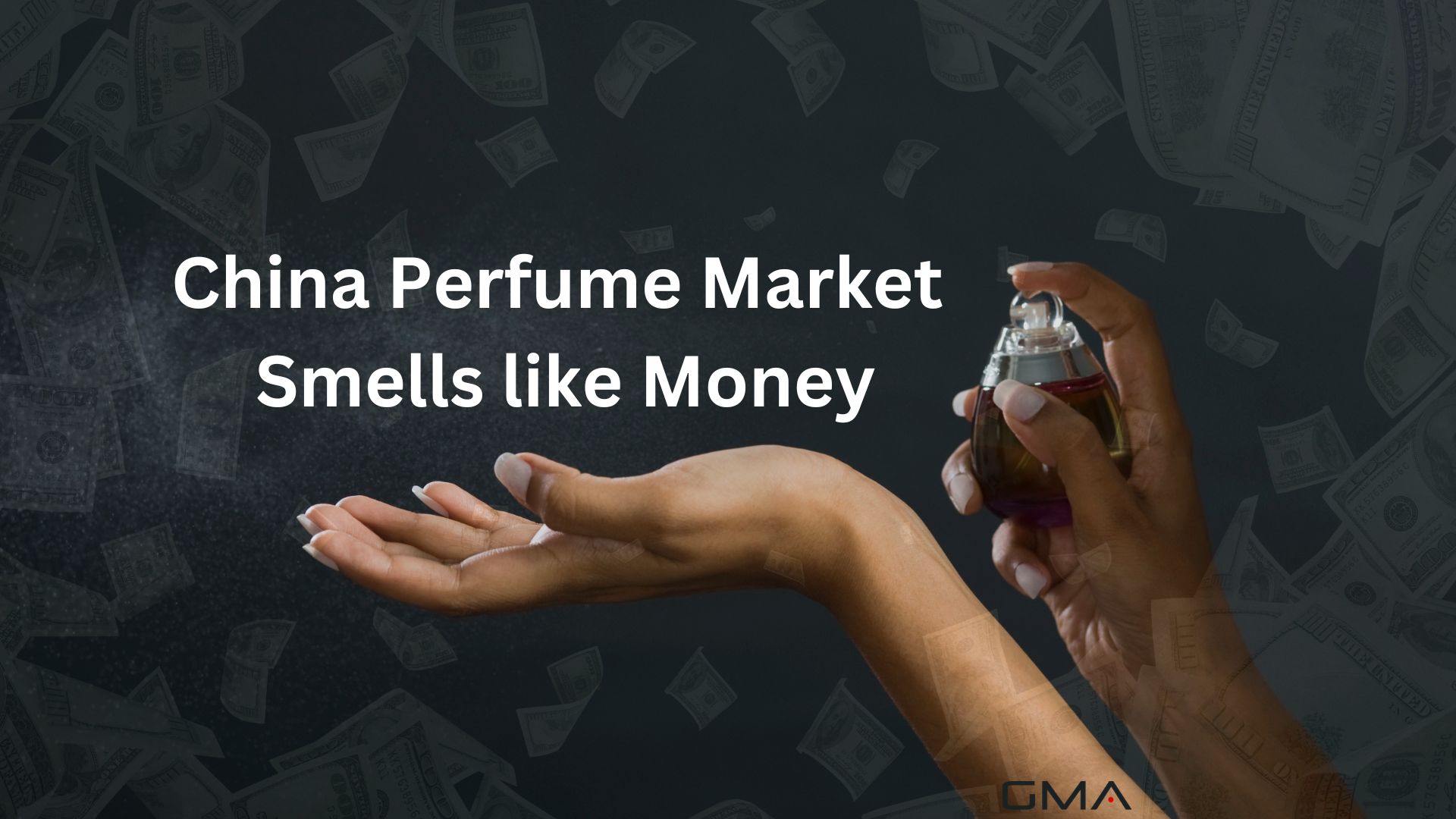
Have you ever wondered what success smells like? In the vast and rapidly growing landscape of the global fragrance industry, the answer might just be found in the intriguing allure of the China Perfume Market. Like a fragrant bouquet of opportunities, it beckons investors and perfume aficionados alike, hinting at a tantalizing scent of prosperity.
As we delve into the aromatic world of China’s perfume industry, we will uncover the secrets behind its remarkable growth, explore the cultural nuances that shape preferences, and unveil the economic fragrances that make this market undeniably smell like money.
Cost-Effective Agency
KPI and Results focused. We are the most visible Marketing Agency for China. Not because of huge spending but because of our SMART Strategies. Let us help you with: E-Commerce, Search Engine Optimization, Advertising, Weibo, WeChat, WeChat Store & PR.
So, let’s embark on a scented journey through the heart of China’s perfume market, where each bottle holds not only fragrance but also the promise of wealth and success.
From East to Scent: Navigating China’s Lucrative Fragrance Market
In the year 2023, the fragrance market is poised to achieve a revenue of a substantial US$1.26 billion, boasting an anticipated annual growth rate of 3.58% (CAGR 2023-2028). While the global fragrance market showcases impressive figures, the United States currently takes the lead, raking in a staggering US$8,715.00 million in revenue in 2023. However, beneath these numbers lies an intriguing story of China’s fragrance market, beckoning entrepreneurs and investors to explore its untapped potential.
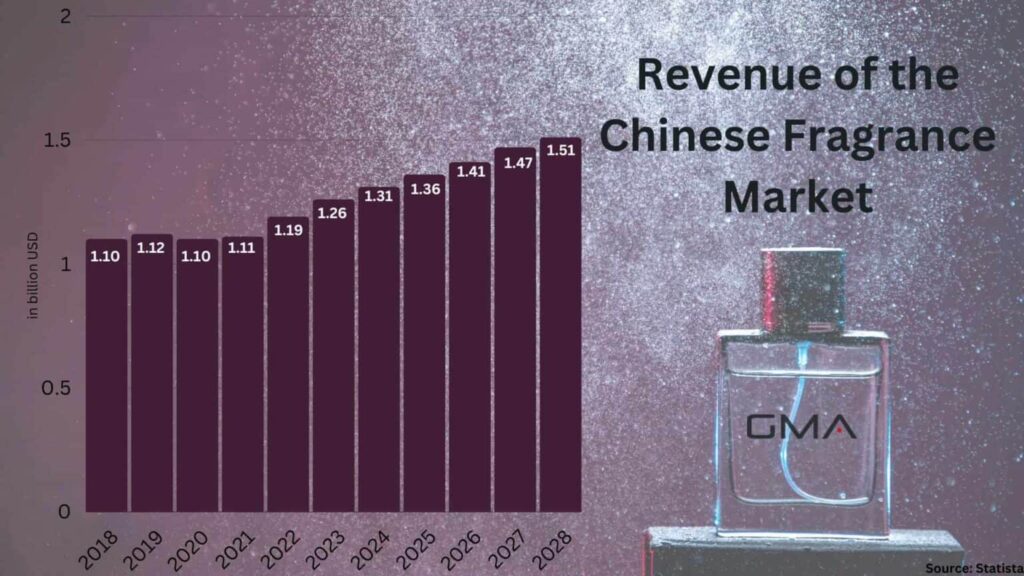
Insights into Trends and Segments in the Chinese Fragrance Market
China’s fragrance market is thriving, but it’s far from a free-for-all. Analysts categorize fragrances into four segments:
- Luxury (e.g., Chanel)
- Prestige/Mid-range ($100-$250 per bottle) (e.g., Gucci, Marc Jacobs)
- Mass Market (<$50-$15 per bottle) (e.g., Burberry, Paco Rabanne)
- Fragrance Accessories (e.g., Estée Lauder, Elizabeth Arden)
These segments host brands with distinct and diverse marketing strategies. Chanel opts for exclusive sales in luxury department stores with high price tags, while Burberry leverages Chinese e-commerce platforms and social media to promote its fragrances.
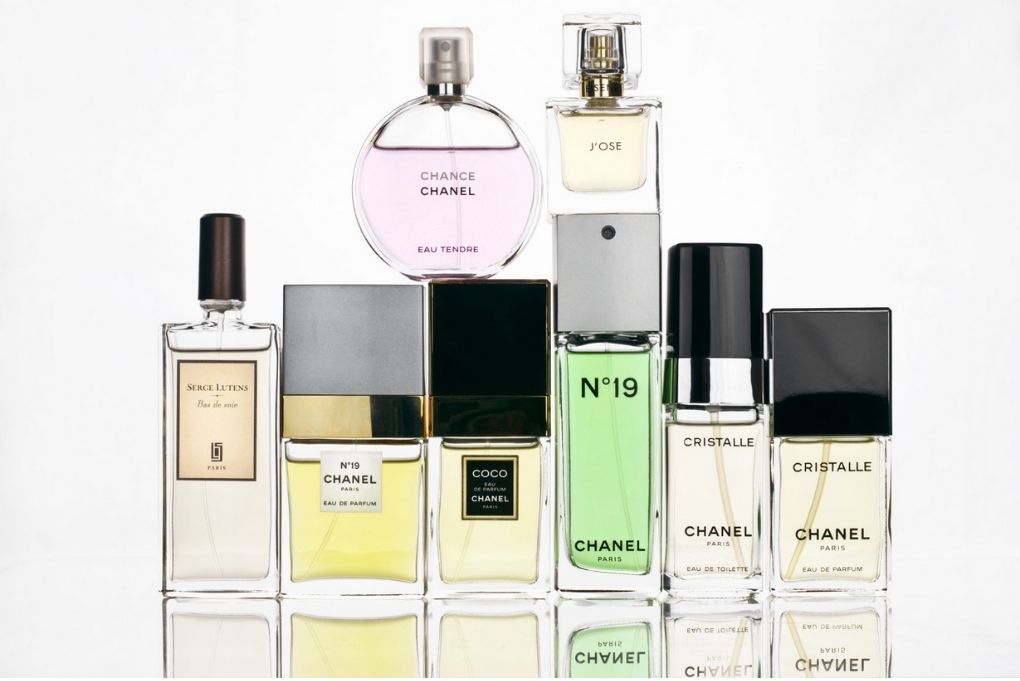
Rising Demand for Men’s Fragrance in China: A Growing Market
The men’s beauty purchase rate in China has shown steady growth in recent years, and it is projected to reach 21.3 billion yuan by 2025. This surge is partially attributed to the emergence of male-oriented brands, such as Hugo Boss, entering China’s perfume market through popular eCommerce platforms.
Men’s consumption patterns for fragrances differ significantly from those of women. Statistically, more than 50% of men view perfume as a seductive tool, a perspective less commonly shared by women. When it comes to selecting scents, most men rely on recommendations from their friends and wives, while 70% of women state that they make conscious fragrance choices.
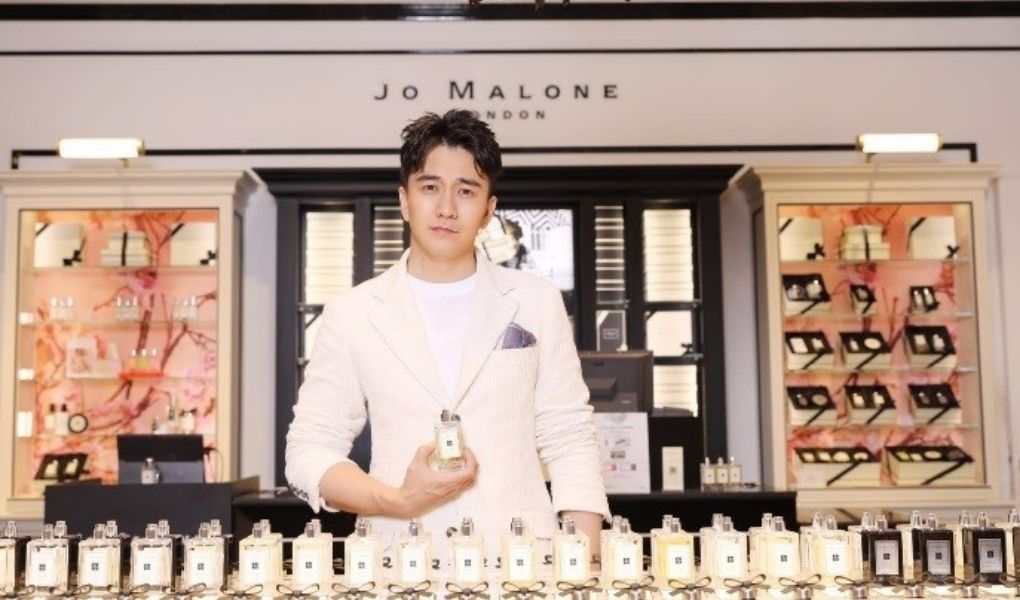
Custom Fragrances: Millennials and Gen-Z’s Choice
Market data tells us that Chinese Millennials and Gen-Z are ready to invest more in personalized fragrances. The customization journey begins with scent preferences, offering a selection from a list of 350 perfume profiles in China. Beyond this, customers can personalize their fragrance with choices like color, bottle shape, and packaging. This trend mirrors the growing demand for customization seen across various industries in China, from skincare’s custom-made serums to personalized jewelry.
Thriving in Elegance: China’s Luxury Perfume Market
In recent years, the luxury perfume segment has garnered substantial attention from fragrance market analysts, with some speculating about its future. However, come 2023, it’s estimated that the luxury goods segment will be responsible for a remarkable 60% of all sales in the fragrance market.
This projection underscores China’s status as the foremost market for luxury brands, as many have seamlessly integrated perfume and cologne into their collections, further expanding their offerings.
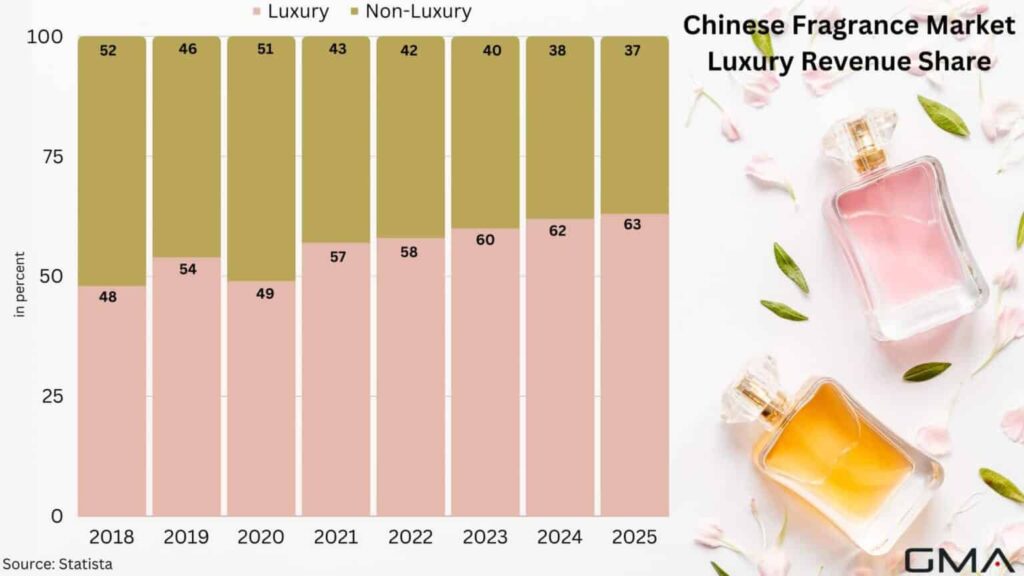
Cracking the Fragrance Market in China: Strategies for Success
Selling perfumes in China, or anywhere for that matter, requires a nuanced approach. It’s not just about product marketing; it’s about brand engagement and crafting immersive experiences. Here’s how to navigate this scented journey:
A Digital-Centric Strategy
China is a digitally immersed nation. While a significant portion of fragrance sales still happens offline, brands can’t afford to neglect online channels any longer. In this competitive landscape, what influences your target audience’s choices includes:
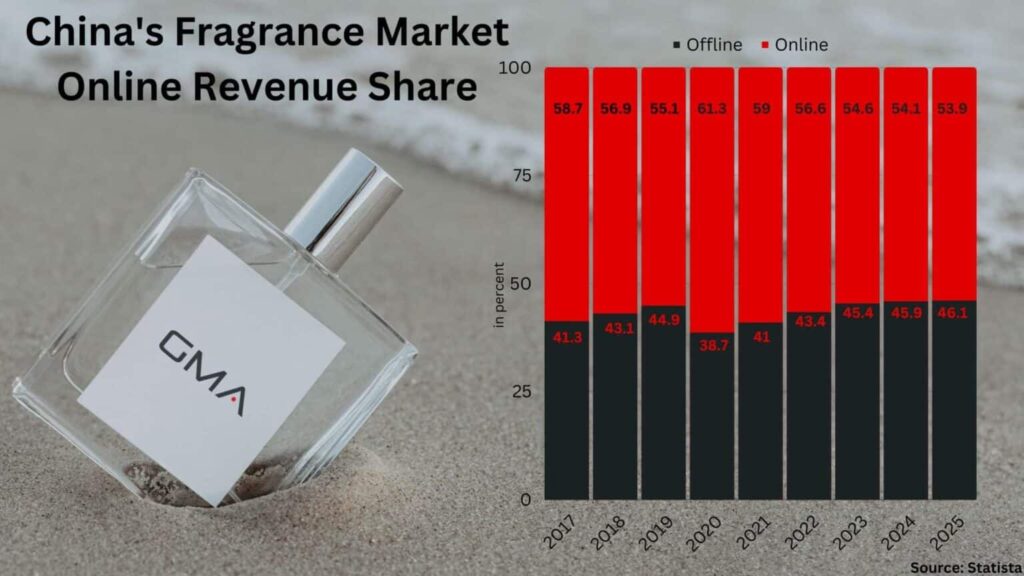
- Recommendations
- Brand awareness
- Online presence
- Convenience
- Price
The Chinese perfume market remains ripe with opportunities and challenges for international brands to explore.
Harness Chinese Search Engines
Baidu, China’s dominant search engine, is akin to Google. Ranking your website on Baidu is crucial. Follow the guidelines and tips outlined in our Baidu Guide for optimal results.
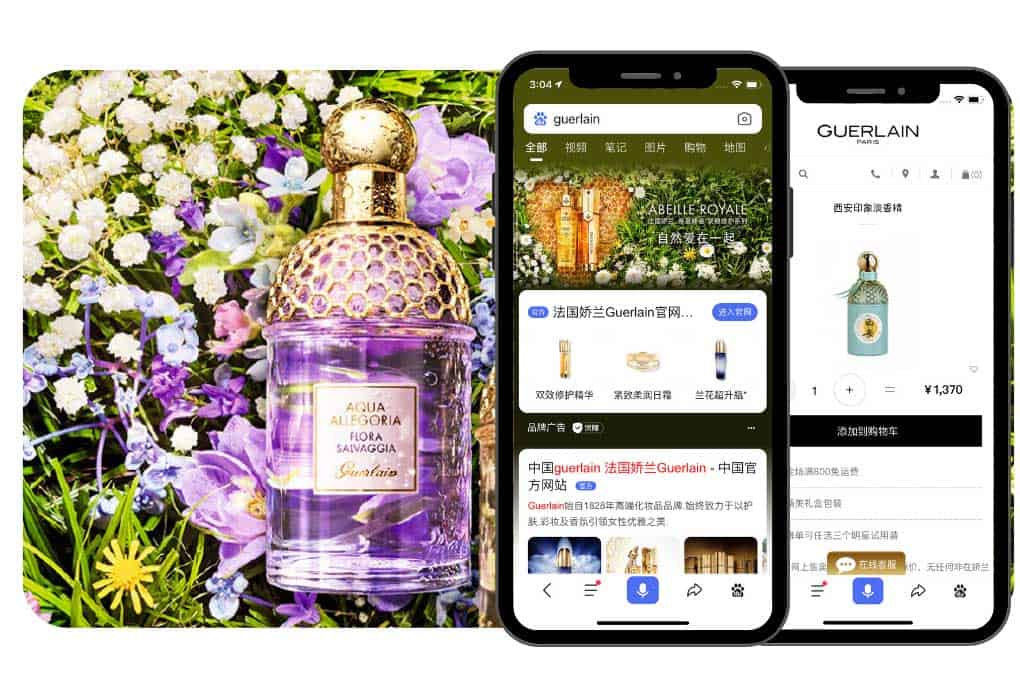
Leverage Social Media
Social media is an essential tool for brands entering the Chinese market, including perfume and fragrance brands.
With over 1.2 billion monthly active users, WeChat is a vital messaging app. Creating an official account and mini-programs can help you reach and engage with your target audience effectively.
Boasting over 573 million active users, Weibo offers a cost-effective way to promote products through paid advertising, making it a valuable channel for brand exposure.

Dive into Xiaohongshu (RED)
RED is the go-to app for cosmetics and fragrances in China, attracting users seeking high-end beauty and lifestyle brands. Many renowned beauty brands are using RED to promote their products, gather reviews, and collaborate with Key Opinion Leaders (KOLs).
Embrace Douyin (TikTok)
Douyin’s popularity for short videos and live-streaming makes it an effective platform for brand promotion, particularly among urban audiences. Leveraging its algorithm, brands can target users with precision.

Selling Perfumes on Chinese E-Commerce Platforms
Tmall: China’s E-Commerce Giant
Tmall stands as China’s leading e-commerce platform in terms of revenue, boasting an average basket value nearing $40. It’s an ideal choice for brands seeking to enhance their visibility in China. Tmall introduced the “Perfume Route” in December 2020, streamlining logistics for fragrance brands. Notably, renowned Chinese fragrance brands are already on board, presenting a prime opportunity for new entrants.
Brands can register for free and showcase their products with a focus on a prominent feature, such as a photo of the fragrance bottle with its Chinese name highlighted. Tmall also collaborates with NetEase Beauty, a major player in China’s beauty and personal care retail sector, to facilitate perfume sales.
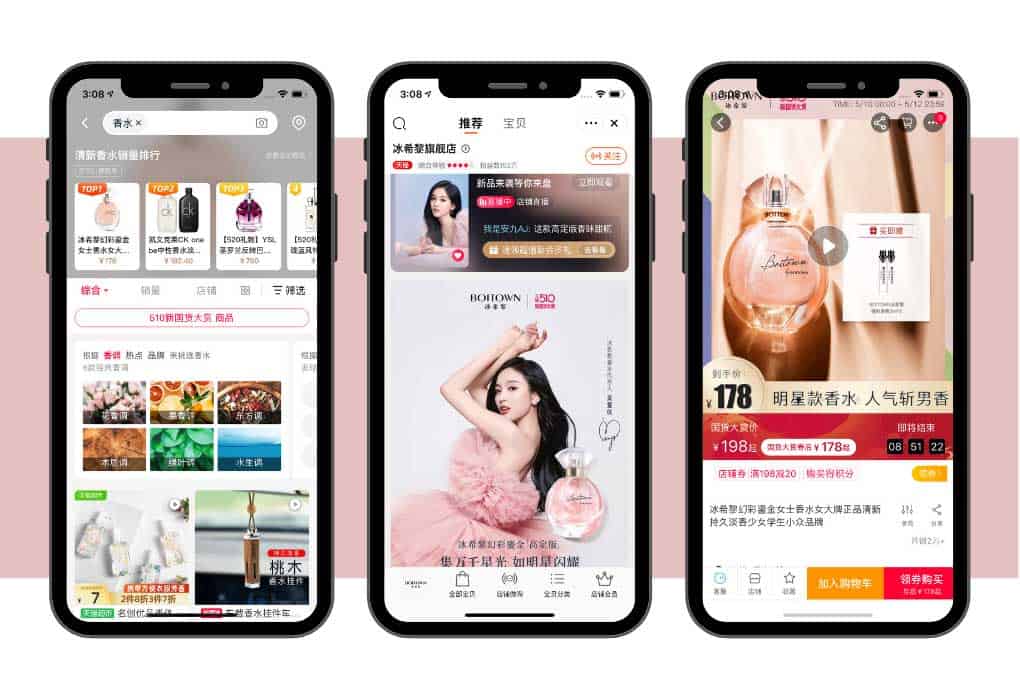
Jingdong (JD): Diverse E-Commerce Platform
JD, China’s second-largest e-commerce platform by revenue, offers an average basket size of $16. Initially recognized for its focus on electronics and home appliances, JD has expanded to encompass a wider range of products, including cosmetics, fragrances, maternity, and groceries.
JD’s perfume section features brands like Guerlain, Lancome, and Dior. These brands curate aesthetically pleasing stores and engage visitors with live streaming, enhancing the shopping experience.
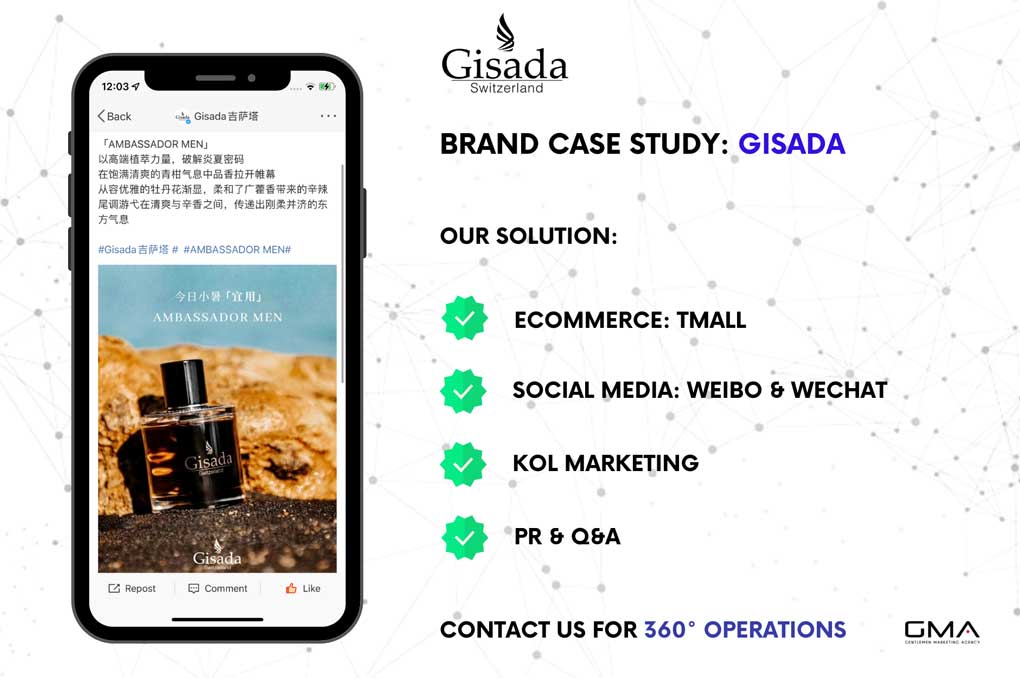
Pinduoduo: Social E-Commerce & Group Buying
Pinduoduo, a popular Chinese e-commerce platform with over 100 million active users, thrives on the concept of group buying. It encourages social interaction while shopping, making it particularly appealing to women.
Many perfume brands, including Hermes, Lowe, Gucci, and Adidas, are available on Pinduoduo through various merchants. While the average basket size may be lower than on other platforms, it’s an excellent avenue to sell surplus products to budget-conscious shoppers.

The Ideal Seasons for Perfume and Cologne Sales in Mainland China
China boasts a rich tapestry of traditions and cultural celebrations, many of which involve the art of gift-giving. These occasions present significant opportunities for the perfume and cologne market. Notably, Chinese e-commerce giants have recognized the potential of these cultural festivals and have also introduced their own shopping extravaganzas. One of the most renowned examples is Double 11, a globally acclaimed event that stands as the pinnacle of the year for countless brands in China.
Moreover, Chinese consumers tend to allocate more of their budget to premium products during key periods like the Chinese New Year and the May holidays compared to other times of the year.
In essence, China’s calendar is brimming with shopping festivals, and any occasion becomes a fertile ground for e-commerce platforms and apps to roll out enticing promotions.
Seizing Opportunities: Partner with Us in China’s Perfumes & Fragrances Market
The perfume and fragrance market in China continues to experience robust growth. While international luxury brands and Chinese e-commerce players are making substantial investments, newcomers to the sector often grapple with understanding how to successfully establish their brands.
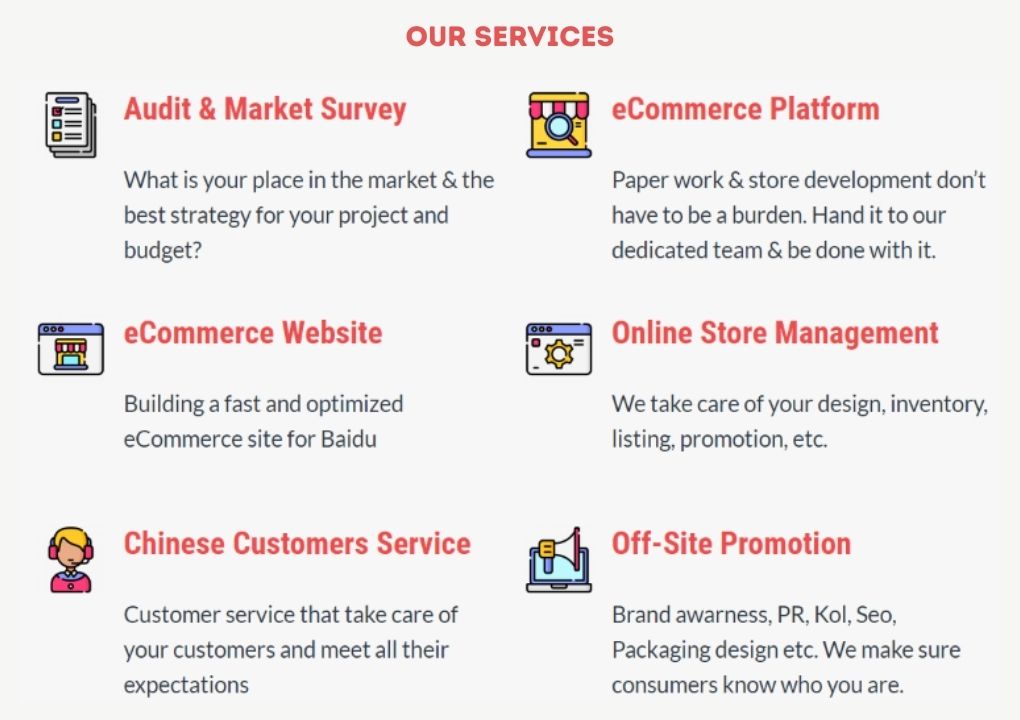
If you’re considering launching your perfume and niche fragrance brand in China, rest assured that we possess the expertise required for such a venture. Our extensive experience, both on the international stage, collaborating with multinational companies, and on the local front, working closely with domestic brands, uniquely positions us to assist you.
Feel free to reach out to us today, and let’s embark on this scented journey together!

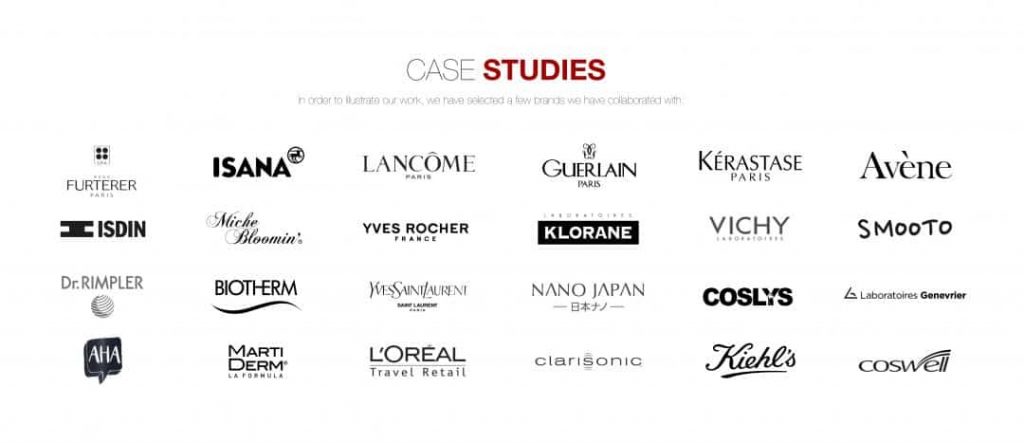





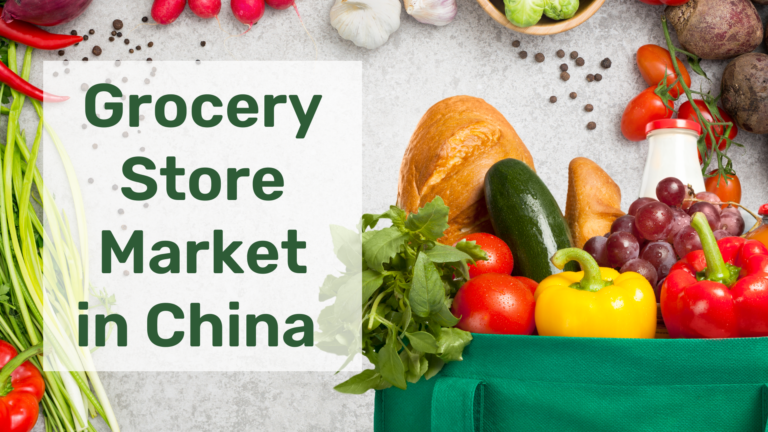

Hello,
My Company is creating a Perfum Store Chain, like Sephora, and we would like to sell Niche Perfum Brands. Can you please contact me if you are interested
Hello, are you inetrested by imported healthcare products and oil/aroma Products?
Hello,
I would like to sell my new Brand directly to some Resellers and wholesale in China, do you think it is possible?
Hello
We are searching brands for our stores in china.
How can we collaborate with your brands?
We will add you to our distributor list